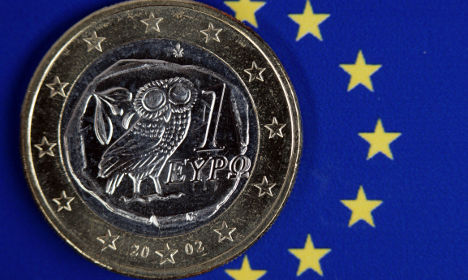“After more than a year of discussing Greece there is currently a great yearning for one finalising, single big step, something ideally that is spectacular,” Merkel said after talks with Russian President Dmitry Medvedev.
“The words being used are clear – a large debt restructuring, eurobonds, a transfer union, and lots more. This creates the impression that everything is going to be okay afterwards, that the issue of Greece and the issue of the euro can be put to one side.”
This way of thinking, she said, was “negligent” or reflected a “lack of patience, or both,” Merkel told a news conference in Hannover, northern Germany, two days ahead of a eurozone summit in Brussels.
“If you are going to be politically responsible, and this is what the (German) government wants and takes seriously, you know that such a spectacular, single step cannot responsibly be made, including on Thursday.
“Instead, we need a controlled and manageable process of successive steps and measures, a process that has one single purpose, one paramount aim, namely finally getting to the root of this problem. “This means reducing debt and improving competitiveness.”
She added: “Thursday will help in this, but further steps will be needed, not one spectacular event solving all problems.”
Greece, Ireland and Portugal have needed bailouts from the European Union (EU) and International Monetary Fund (IMF) and markets speculate that Spain and Italy could suffer the same fate.
Germany has ruffled feathers with demands for private bondholders to participate in the second Greek rescue, but there are concerns that any debt restructuring could lead credit ratings agencies to declare Athens in default.
Jean-Claude Trichet, European Central Bank president, repeated a warning on Monday that any default would mean that Greek banks could no longer offer the country’s bonds as collateral for vital cash lifelines from the ECB.
AFP/mry



 Please whitelist us to continue reading.
Please whitelist us to continue reading.
Member comments